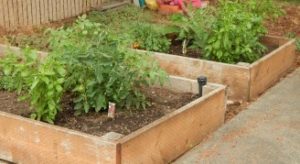Lifeline collaborates with 2nd Step Housing to end homelessness for individuals in recovery
(Vancouver, WA) – A natural partnership between two local non-profit agencies provides much needed housing and support services to people looking for a fresh start after years of addiction and mental health struggles. Lifeline Connections, a behavioral health organization that treats mental health and substance use disorders, and Second Step Housing, a provider of affordable housing linked to case management have formed a partnership to better serve Clark County residents challenged by addictions, mental health disorders and homelessness.
The Kauffman House is a six bedroom home that provides adults with histories of addiction and homelessness the opportunity to build a positive rental history and connect with employment opportunities and other support services that help them prepare for permanent unsupported housing. Applicants must be active clients of Lifeline Connections and agree to participate in activities that maintain sobriety, increase income and reduce or eliminate the often lifelong barriers to self-sufficiency. Adherence to these program guidelines can result in a good rental history, increased income and the potential to facilitate a smooth transition to permanent non-supported housing.
Tenancy in the Kauffman House quickly filled to capacity. Current residents have already begun to take  ownership by building garden boxes and planting vegetables and flowers. They collaborate to share resources, maintain the house and yard and they mediate all conflict issues. Everyone in the house engages in treatment and other sobriety support services and all are is actively seeking employment with two residents already employed.
ownership by building garden boxes and planting vegetables and flowers. They collaborate to share resources, maintain the house and yard and they mediate all conflict issues. Everyone in the house engages in treatment and other sobriety support services and all are is actively seeking employment with two residents already employed.
Second Step Housing has a 90% success rate in moving both individuals and families through the various steps of housing to the ultimate goal of permanent independent housing. The impact for Clark County means that 225 adults and approximately 200 children each year are in homes. Now, because of this collaboration between two non-profit agencies, one more segment of the population has the opportunity for stable housing while building skills, in their recovery, from substance use and mental disorders.
1 Comment
Comments are closed.

Pingback: Daily Insider » Two local non-profits collaborate to end homelessness for addicts